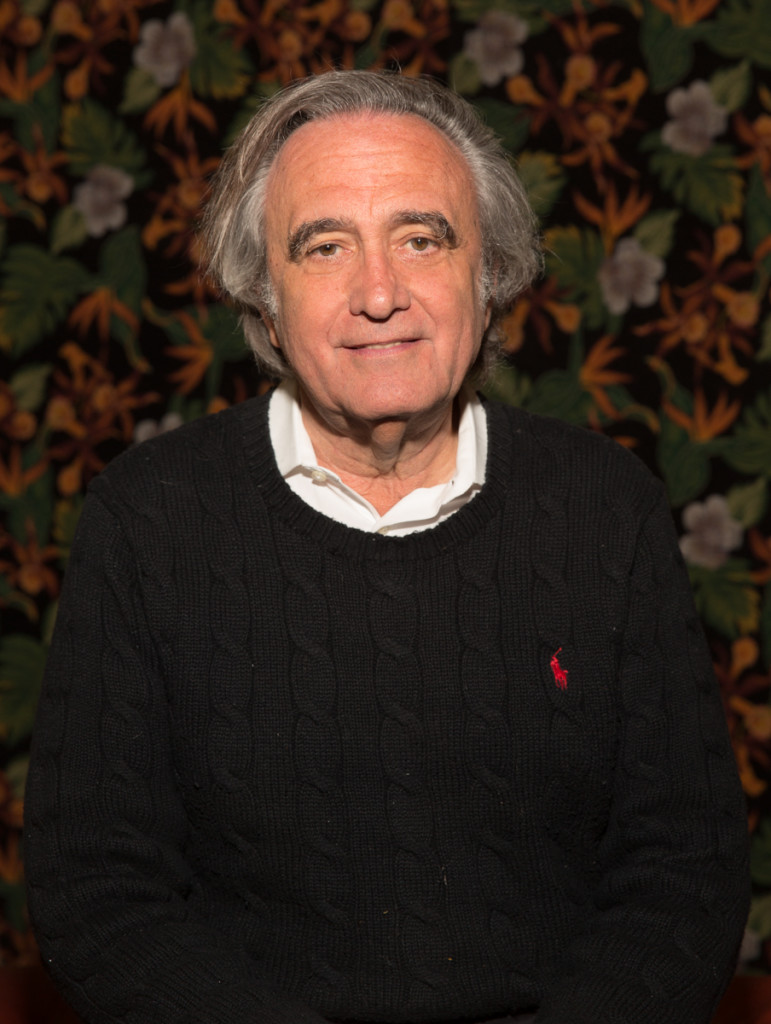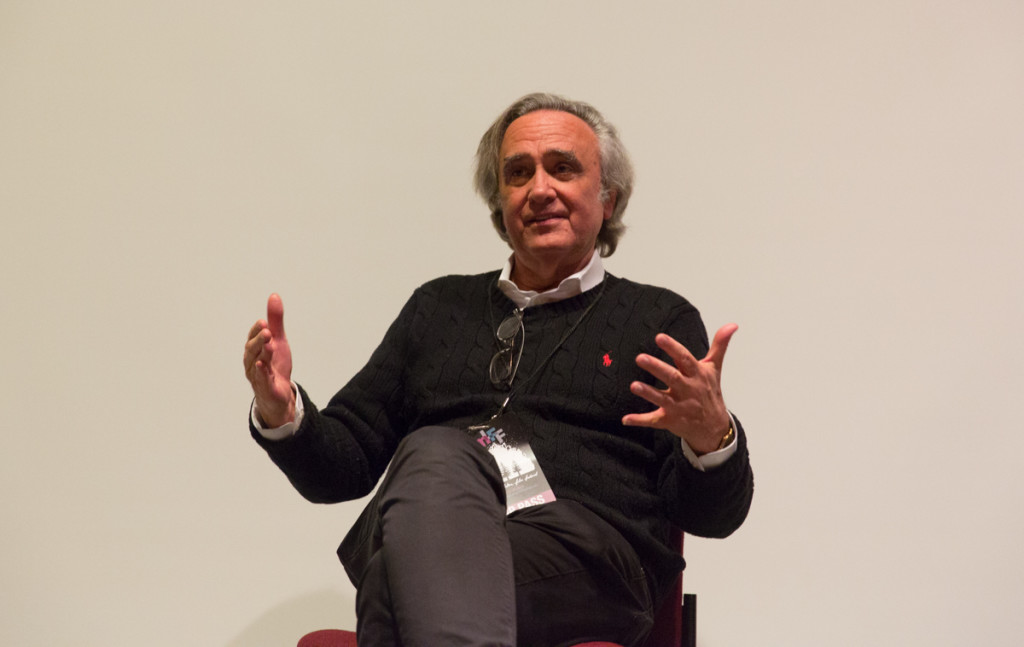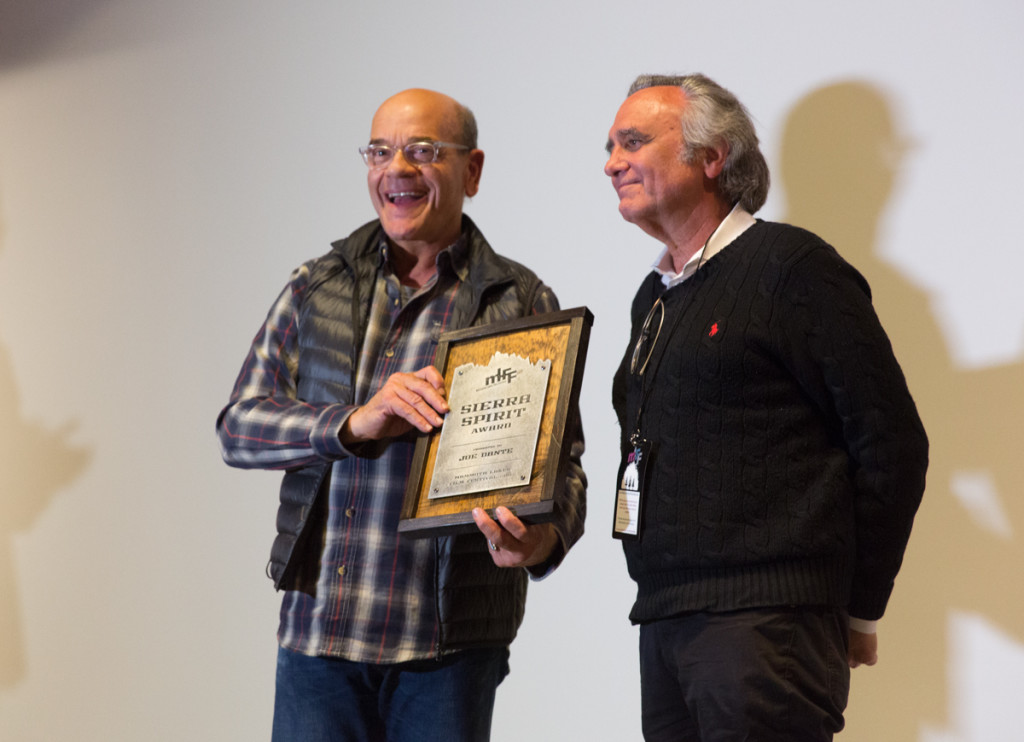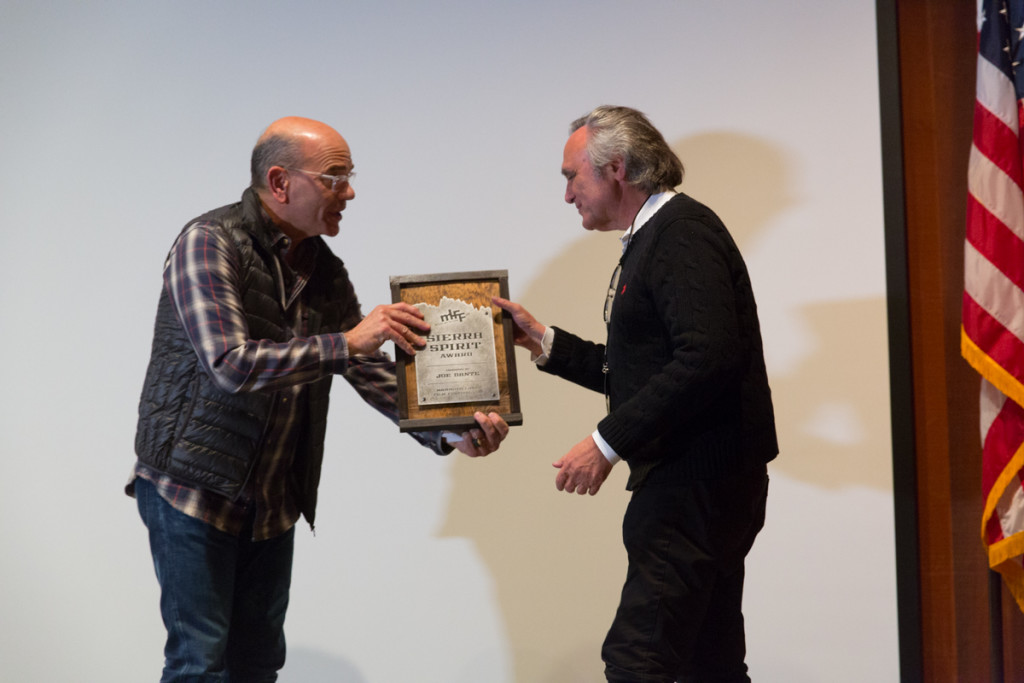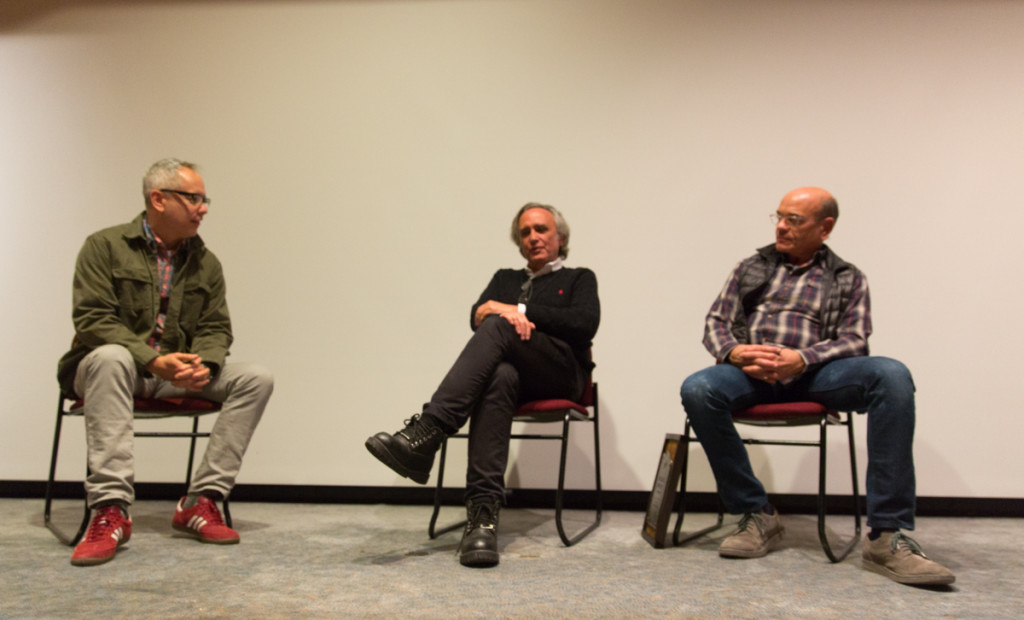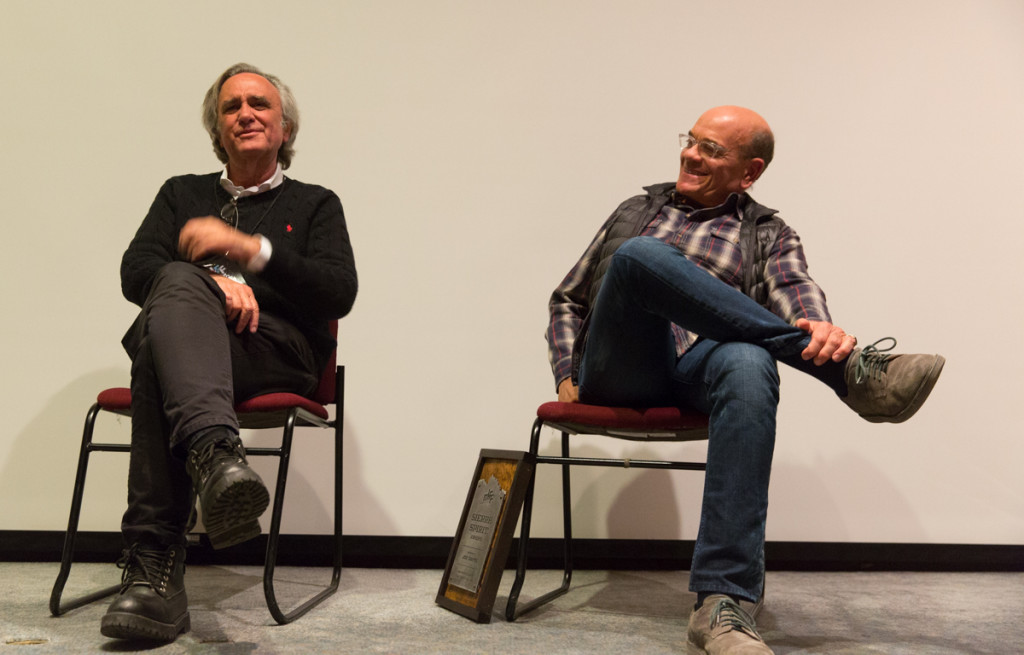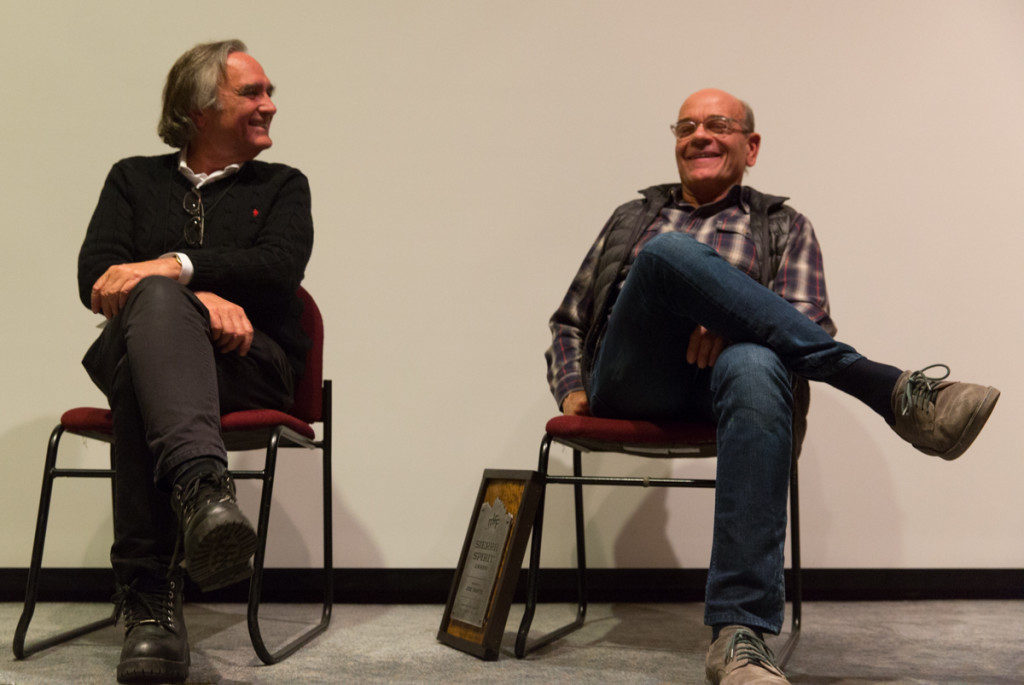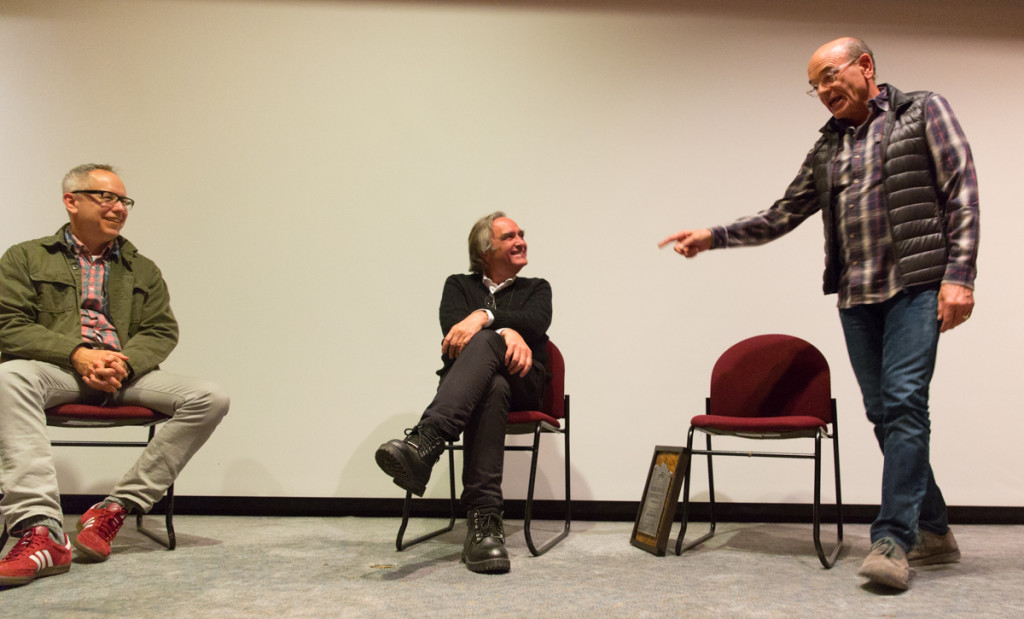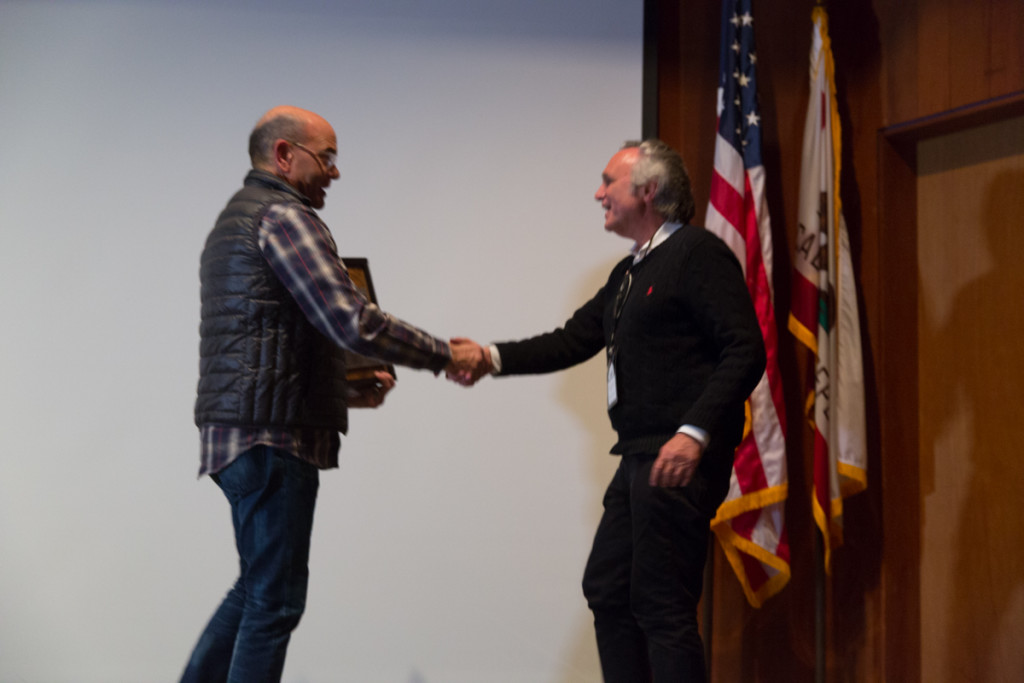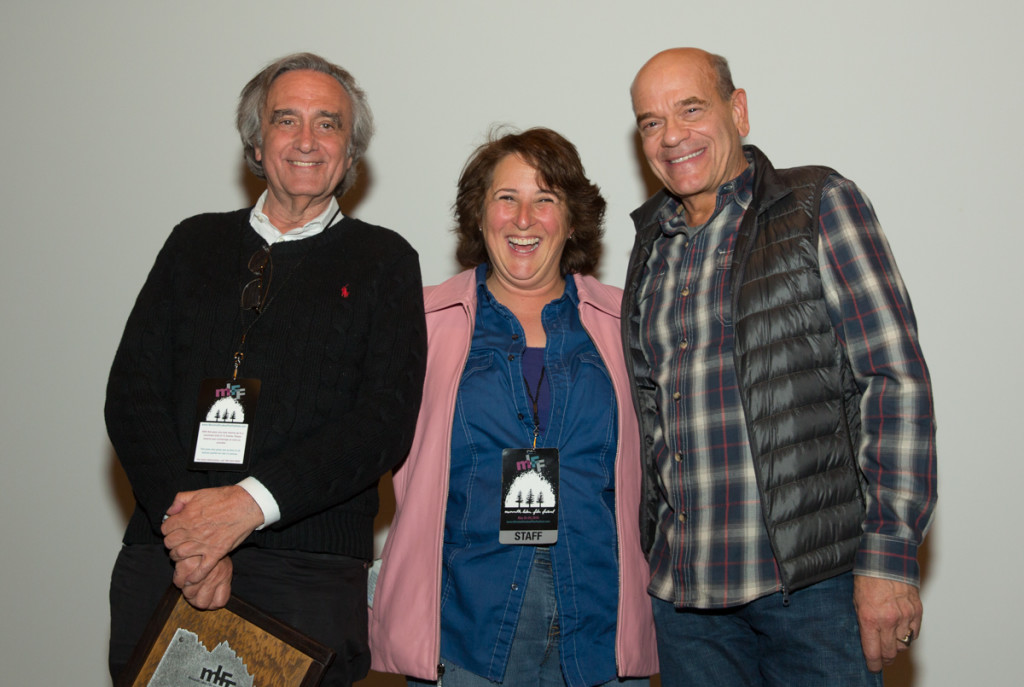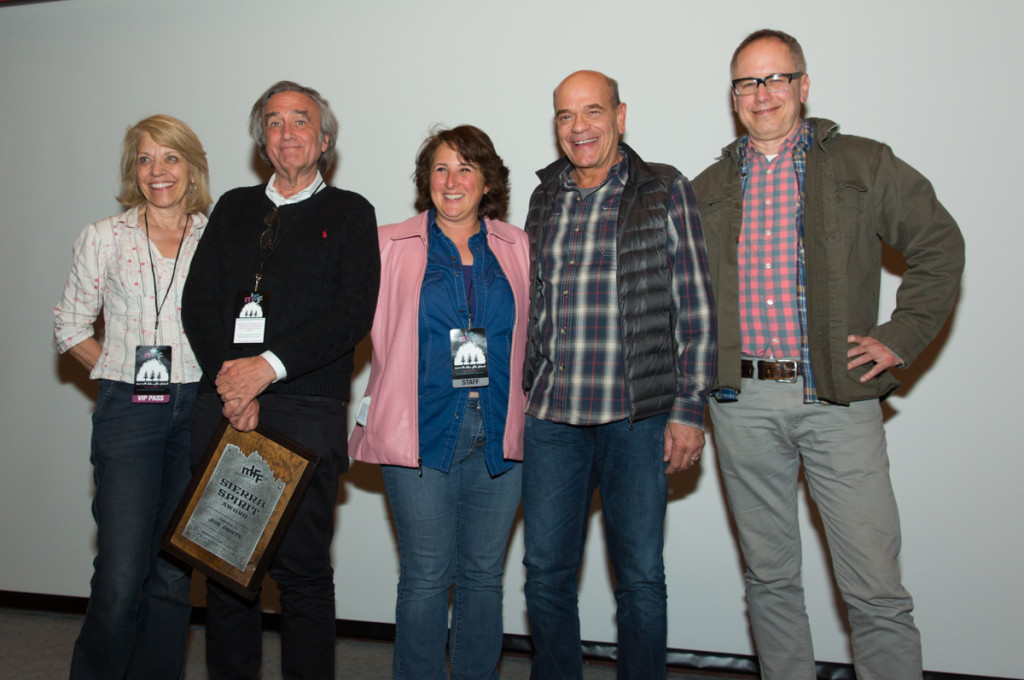At the Mammoth Lakes Film Festival, held May 25 through 29th, director Joe Dante (Gremlins, Innerspace) received the first annual Sierra Spirit Award. We interviewed Dante, learning about his past, his films, and his future plans.
What inspired the director to get started in filmmaking? His love of cinema of course.
“I wrote about movies, I watched movies. I never really thought I would end up making movies – I thought the process would be too hard. I remember seeing Lord of the Flies in New York in 1963. I saw it many times. I went back, and I counted the shots, and I thought, I can’t do that, it’s too hard, I’ll just write about movies,” he laughs.
Dante enjoyed his first job as a trade reviewer, but when friends moved to Los Angeles to work with Roger Corman, they encouraged him to join them.
“They said come out, see what you might like to do. So I did, and I started editing trailers. You really have to cut to the essentials with trailers. Some films were good, some weren’t, but the other trailer editor, Allan Arkush, and I both learned a lot from working on them all.”
Above and below, Dante receives the Sierra Spirit Award from longtime friend and ensemble actor Robert Picardo, who hilarious played the role of “Cowboy” in Dante’s Innerspace.
Eventually, Dante and Arkush asked to make their own film. They decided on the title Hollywood Boulevard, and put together a film that followed the iconic formula of many of Corman’s genre pictures at the time. The script riffed on the “three girls” formula popular at the time.
“We made our three girls starlets as opposed to nurses and teachers. But all the films basically it was three girls having adventures and taking their clothes off. Making them starlets, we could use existing action footage from disparate trailers, jungle settings, Bonnie and Clyde type settings, sci fi, we had actions scenes for all of that. We wrote the story around the stock footage we had access too, and basically cast our three girls in each of these types of film. It ended up being a pretty accurate depiction of being a starlet and making movies in the 70s,” he recalls.
Above, Dante chats after receiving his award with Robert Picardo and festival programmer Paul Sbrizzi.
Although the film had a limited release – “just another movie thrown out into the drive-in world,” Dante says – later it was considered to have a “certain charm. But it’s so politically incorrect it’s embarrassing.”
But without having crafted the film, Dante says he wouldn’t be talking to us today.
“We went back to editing, but the trailers improved because Roger was distributing some quality films by directors like Fellini and François Truffaut,” Dante relates. “We wanted to make more films ourselves. Two projects came up: Piranha, and Rock n’ Roll High School. I preferred the latter, but Allan wanted that project, so I got Piranha.”
Piranha marked the real start of Dante’s career.
“It came to me as not very good script, but John Sayles was one of the talented young people on Corman’s short list. He was hired to rewrite it, and added a lot of satire to it and some political angles, both of which pleased me. We made a somewhat unexpected take on what would’ve been a drive-in movie exploitation film otherwise. It kind of got me noticed,” Dante says self-deprecatingly.
Dante has had a recent series, Splatter, produced for Netflix, and he says the film industry itself has changed; he prefers to come up with his own ideas and projects and work on his own funding. “Things are so different today. No one comes to you with a script and says let’s make this movie. They come up with a project, and if you’re interested you become attached to it while they try to raise money for it using your name. You spend more time begging for money than you do filmmaking.”
Regardless of how the process has changed, Dante lives, breathes, and loves movies, calling the movie-going experience itself a spiritual one.
His filmmaking sensibility is finely honed. “Writing reviews in the late sixties and 70s , I covered such a cross-section of films, even porno films. I had a really good handle on the business, I didn’t even realize I’d put away as much knowledge about the movies as I had, and it really helped me in Hollywood.”
His magazine writing also contributed to the respect Dante shows to his writers. He’s well known for providing remuneration in the form of a small on-screen part simply to get the writer on-set.
“It started with Piranha. I wanted John Sayles on the set to work things into the script that I’d found when we were scouting locations. I like to have the writer around, and the only way to get them on location is to give them a part. It’s important to have the writer there to rework or add to a script. If it ain’t on the page, it ain’t on the stage,” Dante asserts. “With Piranha, we used a ‘resort’ called Aquarena Springs. There were dancing chickens, and Ralph the Swimming Swine as a part of the attraction. I wanted Sayles to add the location into the script, so I brought him down to our location.”
With many of Dante’s films depicting fantastical elements – such as the miniaturization premise of Innerspace, which screened at the festival as part of the tribute to Dante, we asked what the director would do now when it comes to such elements.
“It’s difficult to do something like that now,” Dante ruminates. “Everything has been done really, including self-aware movies like Scream, that have highlighted all the cliches. It’s hard to come up with something new and still give the audience the kind of genre film they want to see. There’s a limit to how far you can go off the beaten track,” he notes.
He cites Cabin in the Woods as an example of a film in which “they turned audience expectations on their head, but that’s tricky to pull off, although the audience gets more for their money so to speak. Still, that script sat on the shelf for three years before it was produced.”
One aspect that affects filmmaking today most strongly, Dante believes, is the use of technology, from drone shots to CGI, which the director didn’t have when he crafted Innerspace. Instead, he relied on actors, a witty script, and techniques from well-crafted models to break-away clothing to handle the action. “Today, technology is the tail that’s now wagging the dog,” he says. “It’s the reason we get the movies we do, in order to utilize it.”
Above, Dante, Festival Director Shira Dubrovner, and actor Robert Picardo.
As to Innerspace, even without today’s technology, the story holds up, the script is bright and fast paced, and the limited effects used still play well without looking dated. “It works,” Dante attests. “The comedy holds up. Originally they wanted it to be a straight spy movie, but I thought it was too silly. So it became a comedy.”
A comedy like much of Dante’s work, which has stood the tests of time and technology, reflecting the director’s intelligence and creativity and entertaining generations of film goers.
- Genie Davis; All Photos: Jack Burke


